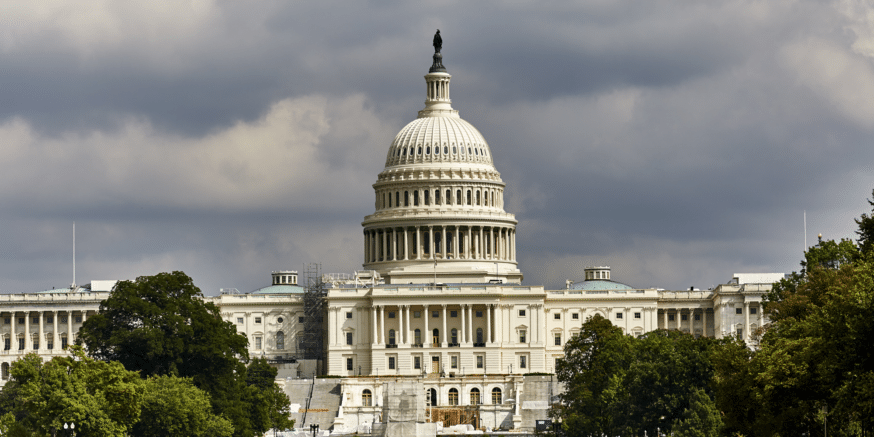TLDR
- U.S. Senate Democrats are showing strong support for the crypto market structure bill after meetings with industry leaders.
- Several key lawmakers have expressed their commitment to advancing the bill, with over 10 senators involved in the discussions.
- Tensions over decentralized finance regulations remain, but optimism persists that the policy gaps will be resolved soon.
- Senator Kirsten Gillibrand is playing a central role in leading the negotiations to create tailored crypto regulations.
- Republican lawmakers continue to push for the Digital Asset Market Clarity Act, competing with the market structure bill.
U.S. Senate Democrats are showing strong support for a crypto market structure bill following a series of meetings with industry leaders. Key discussions centered on the next steps for regulating the cryptocurrency market, with a particular focus on addressing concerns related to illicit finance. Crypto executives, including Coinbase CEO Brian Armstrong and Chainlink CEO Sergey Nazarov, participated in these talks, marking significant progress on the bill’s trajectory.
Democratic Lawmakers Signal Support for Market Structure Bill
Democratic lawmakers appear committed to advancing the crypto market structure bill, with several senators expressing their readiness to move forward. During a meeting with crypto CEOs, they discussed the key issues that must be addressed for successful legislation.
“It’s clear there’s a sufficient level of Democratic support,” said Chainlink’s Sergey Nazarov.
He noted that more than 10 lawmakers attended, all of whom were dedicated to pushing the bill through Congress.
The meeting also revealed that some internal tensions over decentralized finance (DeFi) regulations remain. However, Nazarov expressed optimism, stating,
“I think that friction is transitory and will resolve soon.”
Despite the challenges, lawmakers and industry leaders appear determined to craft a bill that strikes a balance between innovation and regulatory clarity.
Senator Kirsten Gillibrand, a leading advocate for tailored crypto regulations, is playing a pivotal role in the negotiations. Her leadership has been instrumental in ensuring that the crypto market structure bill addresses the concerns of both industry stakeholders and regulators. Industry leaders are hopeful that these efforts will lead to legislation that can pass both the Senate and the House of Representatives.
Republican Counterparts Push for Digital Asset Market Clarity Act
While Democrats show readiness to engage, Republicans continue pushing their own version of crypto regulation. Senator Tim Scott’s office has recently called for increased bipartisan cooperation, urging Democrats to return to the negotiating table. “We need serious bipartisan discussions,” Scott’s spokesperson said after meeting with crypto industry leaders. The Republican draft focuses on the Digital Asset Market Clarity Act, a competing proposal that aims to bring more straightforward guidelines to the crypto sector.
🚨NEW: A play-by-play of what went down at the Senate Democrats–crypto industry leaders roundtable that just wrapped, according to sources in the room:
The meeting opened with 30 minutes of introductions from industry leaders, which one attendee described as offering “the…
— Eleanor Terrett (@EleanorTerrett) October 22, 2025
Industry leaders have also expressed concerns about the pace of negotiations, with some suggesting that the Senate’s bandwidth for crypto regulation is limited in 2025. Despite these hurdles, the push for a market structure bill will continue to gather momentum. Both sides of the aisle have acknowledged the growing importance of comprehensive crypto regulations to ensure long-term stability.
As discussions progress, crypto executives, including Coinbase’s Brian Armstrong, remain optimistic.
“We’re keeping the pressure on in DC,” Armstrong stated, signaling that industry leaders are committed to getting the bill passed.
However, significant work remains before any proposed bill can advance in the legislative process.
Final Steps in the Legislative Process for Crypto Market Structure Bill
Even with bipartisan support, several procedural hurdles must be overcome before the market structure bill can become law. The Senate Banking and Agriculture Committees must advance the bill’s language before it can be voted on. Once the bill clears the Senate, it will need to pass through the House of Representatives before reaching President Trump’s desk for a signature.
Despite the challenges, industry leaders remain optimistic about the future of crypto legislation.
“It’s really to everyone’s benefit to have the bill pass — to get the digital asset community accepted by the U.S. government,” Nazarov said.
While some in the industry fear that the legislation may not be passed this year, others believe the ongoing work by the Securities and Exchange Commission and the Commodity Futures Trading Commission will provide further clarity.
In conclusion, while the path to passing a crypto market structure bill remains complicated, the meetings between lawmakers and industry leaders signal positive momentum. With ongoing bipartisan efforts, the bill may be a step closer to becoming law, bringing greater clarity to the U.S. crypto market.






